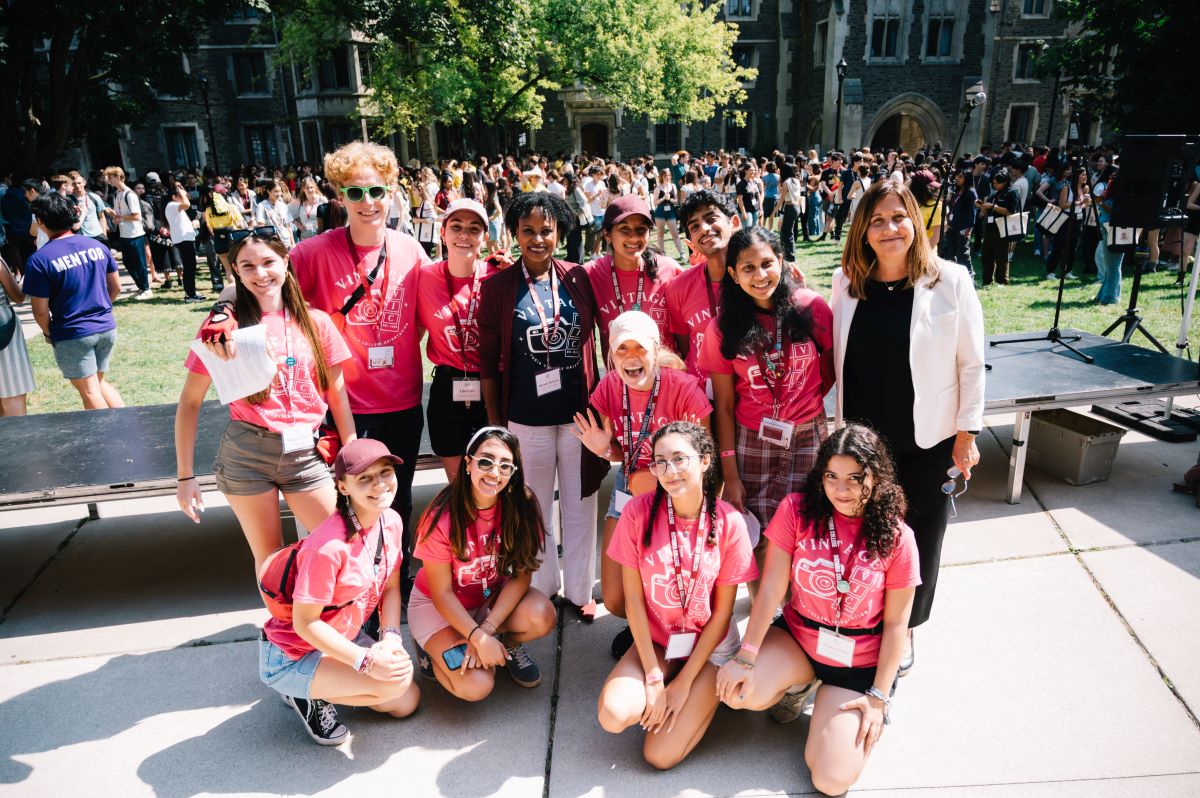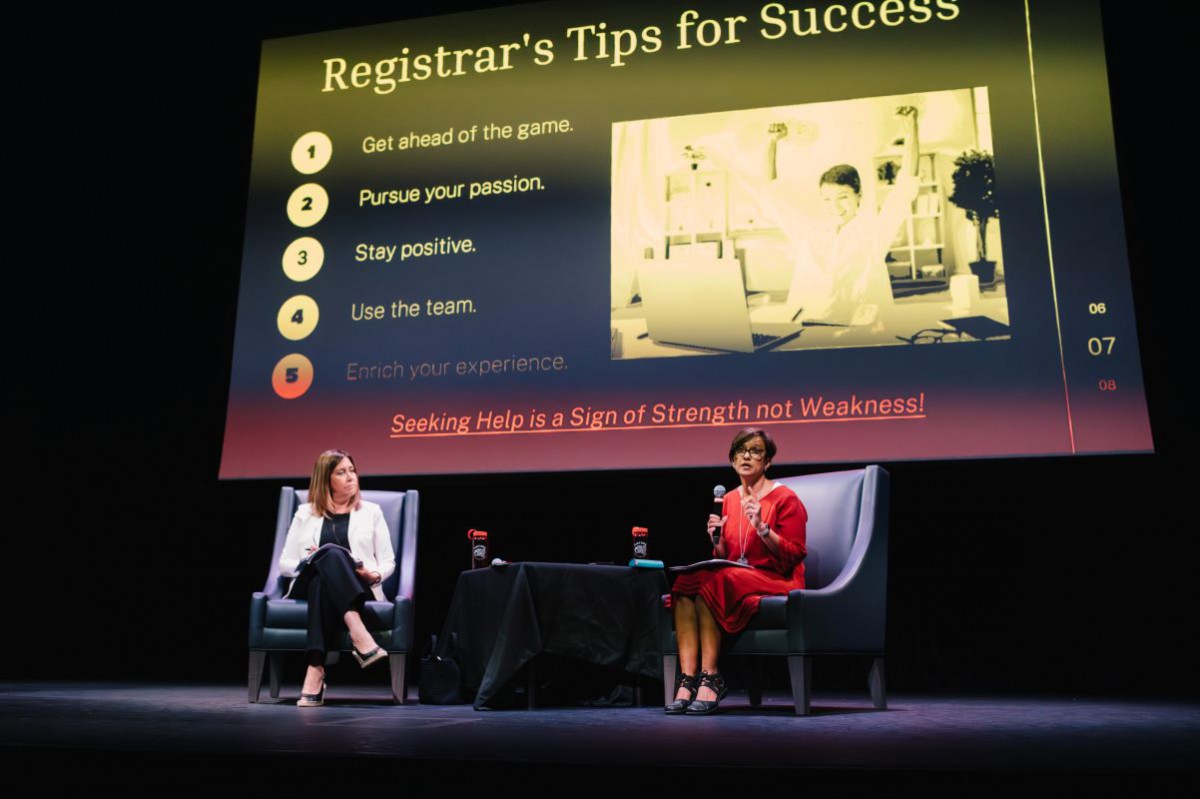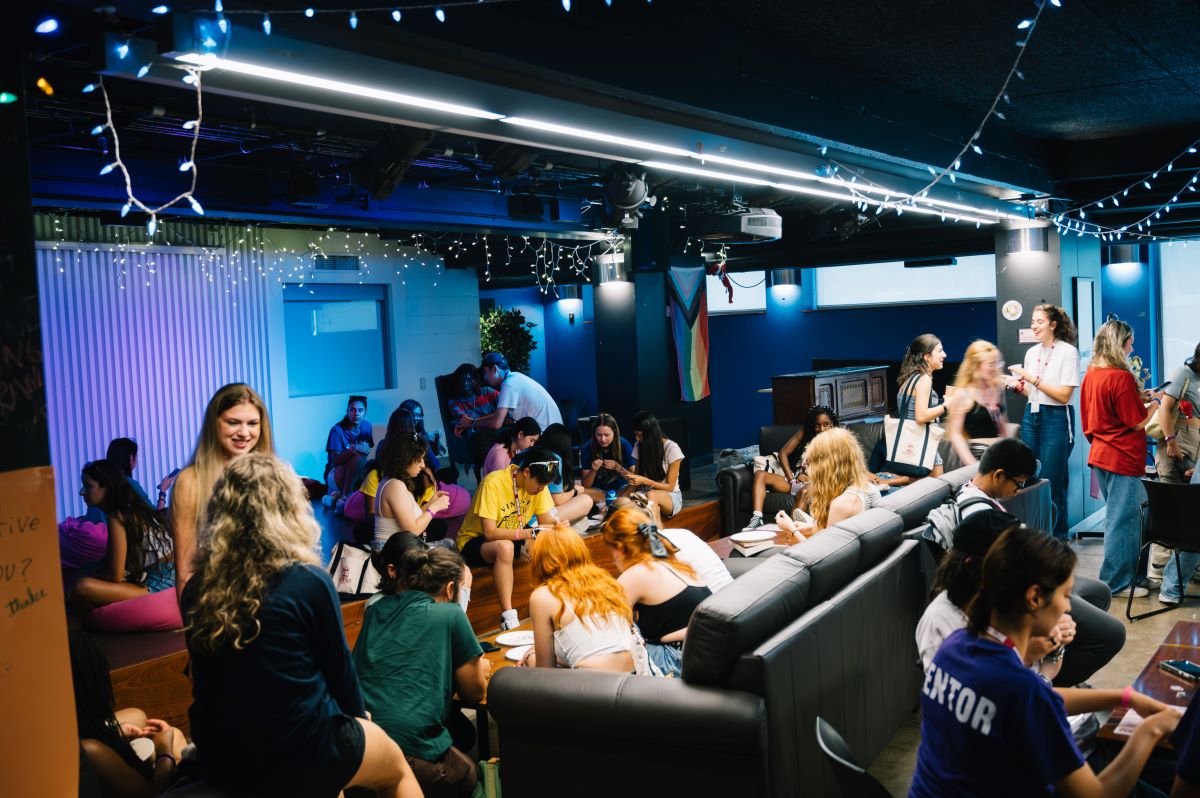How Orientation Week Has Changed to Provide a ‘Soft Landing’ at Vic

Victoria University President Rhonda McEwen, centre, and Dean Kelley Castle, top right, pose with student leaders during orientation week. (Photos by Will Dang)
By Joe Howell
Orientation week has evolved significantly since Victoria College was founded in 1836. As with many universities, activities geared to a boisterous welcome have been replaced by an orientation more in keeping with what the word truly means: helping students to find their place.
Kelley Castle, dean of students at Victoria University, said the old focus of partying at “frosh week” has shifted, and that Vic’s goal is to create a welcoming and inclusive environment for students while preparing them for this exciting stage of their lives.
“Orientation has changed a great deal, even over the past 10 years,” Castle said. “It used to be more raucous, often involved alcohol and was primarily social. Now it is seen as a pivotal moment providing a gradual, soft landing when students transition to university.”
It’s still fun, Castle said, but that “fun” is different depending on the person.

Dean Kelley Castle and Yvette Ali, registrar of Victoria College, take questions from students during an orientation week info session.
With dozens of events led by more than 200 student leaders, preparations for each year’s orientation start months in advance and involve both the Office of the Dean of Students and the Office of the Registrar.
Castle said student leaders have weeks of training, including sessions on mental health and wellness, communication and conflict, preventing and responding to sexual violence, anti-bias and identity, building a culture of consent and bystander intervention.
They also receive EDIA training from the University of Toronto’s Sexual and Gender Diversity Office and the Anti-Racism and Cultural Diversity Office, along with special sessions run by health and wellness partners at U of T.
Another significant change is in the range of event programming. There now is a recognition that an inclusive first week cannot be “one size fits all,” said Castle. “Listening to students and responding to the data, we know that having an orientation week tailored to the differing needs of students can make a palpable difference not only to how they acclimatize socially, but also to their academic success and sense of belonging on campus.”
One way that plays out is the introduction of “parallel programming,” Castle said. For the past seven years, the Office of the Dean of Students has offered “low-energy” events alongside the “high-energy” ones.
“What’s exciting for some can be overwhelming for others, and what’s small-group and quiet can be intimidating in a different way,” she said.
Students are encouraged to find what fits them.
“For example, if there’s a dance, there will also be board games in a student lounge,” Castle said. “There’s still some of that ‘rah rah orientation,’ but it’s optional.”

Students make friendship bracelets in the Cat’s Eye during a lower-energy orientation event.
These quieter events are open to all, said Heidi Pepper Coles, associate dean of students at Vic U. “Whether someone finds social interaction nerve-wracking or just wants a bit of a break, they have options,” she said. “During the tri-campus dance at the ROM we also screened Mean Girls in the quad on a projector, ordered pizza and spread blankets on the lawn so students from Trinity, St. Mike’s and Vic could meet and relax.”
Coles noted the orientation team has seen a significant rise of engagement in these lower intensity events. “This year we had a low-energy Bingo night in the Cat’s Eye and it was packed—there was a 50/50 split with the high-energy event!”
Team members from the Office of the Dean of Students gather in the quad during orientation week in 2023. (Photo by Elena Ferranti)
The changes to orientation week have been spurred by both student feedback and a growing focus on wellness and equity in the Dean’s Office, said Coles.
“We’ll hold our second Neurodiversity Day of Learning this year,” she said. “Last year’s was a nice supplement to orientation, which we started after some of our students said they would prefer to first go through orientation week, start their classes and then come together later in a secondary space to ask more questions and reflect.”
It’s amazing to see the change in students between the beginning and the end of orientation week, said Castle. “By the time students start classes, they have found a place at Vic and U of T. Their nervousness subsides and comfort sets in. It’s a huge boost to the start of a new phase in their lives.”
